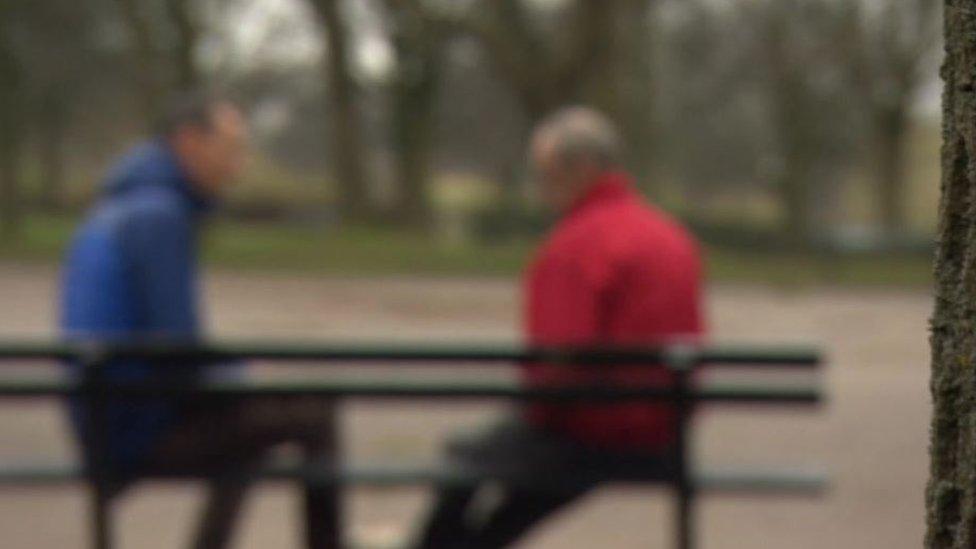Rooney family slavery gang ordered to pay victims £1m
- Published
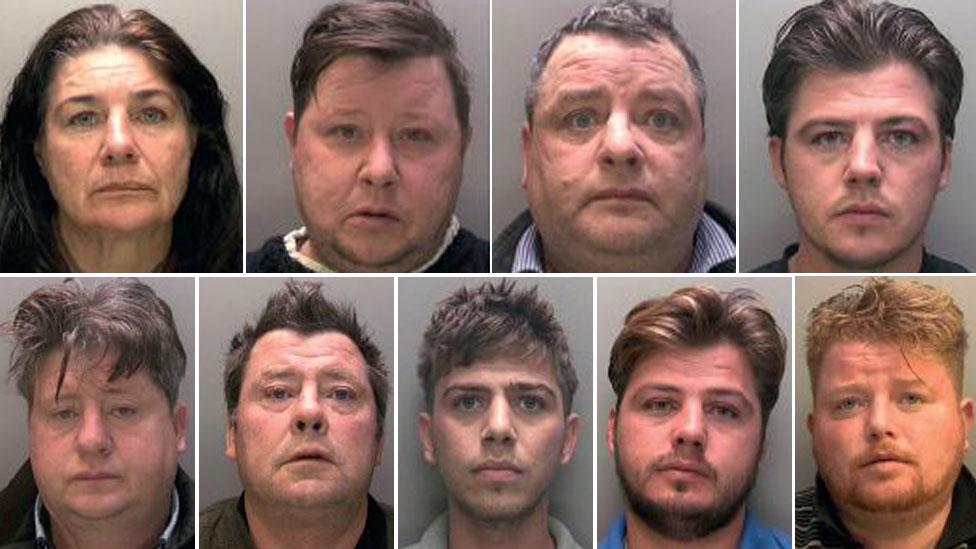
Nine members of the Rooney family, who ran a driveway resurfacing business, were jailed in 2017
Members of a traveller family convicted for enslaving 18 men have been ordered to pay more than £1m under the Proceeds of Crime Act.
The Rooney family's victims were fed on scraps, kept in squalor, and forced to work for little or no pay, laying driveways for the family business.
Nottingham Crown Court heard 12 members of the Rooney family, 10 of whom have been jailed, benefited by about £4m.
It also heard the majority of any money recovered would go to victims.
Benefits of £4,174,827.54 were identified, with confiscation orders to the value of £1,083,403.61 made.
They range from £440 to £438,000.
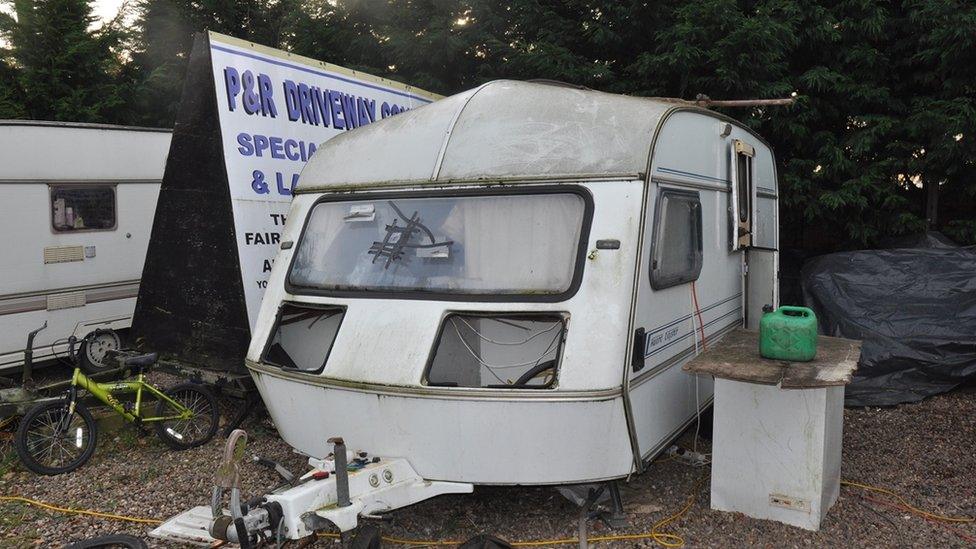
The victims lived in squalor, police said
Ch Supt Nikki Mayo, from Lincolnshire Police, said the order showed "the breadth of criminality", and included money that should have been paid to the victims in wages.
"They are getting what they are entitled to," she said.
Previously, a trial heard victims were left without running water or toilet facilities at the Drinsey Nook site in Lincolnshire.
They were all described as vulnerable adults, aged between 18 and 63, who were often homeless and had been picked up by the defendants from across the UK.
In one attack, a man was beaten with a shovel and left injured in a caravan for days for returning a car with no petrol.

The Rooneys lived in comfort on the hard work of their victims, police said
Police said while the Rooneys led an extravagant lifestyle, their slaves lived in filth - some in stables next to dog kennels, many in unkempt caravans without running water or toilet facilities.
"Many were very, very thin and they were absolutely filthy," said Ch Supt Mayo.
Under the Modern Slavery Act, introduced in 2015, it is illegal to hold someone in slavery or servitude and force them to carry out compulsory labour.
- Published26 April 2018
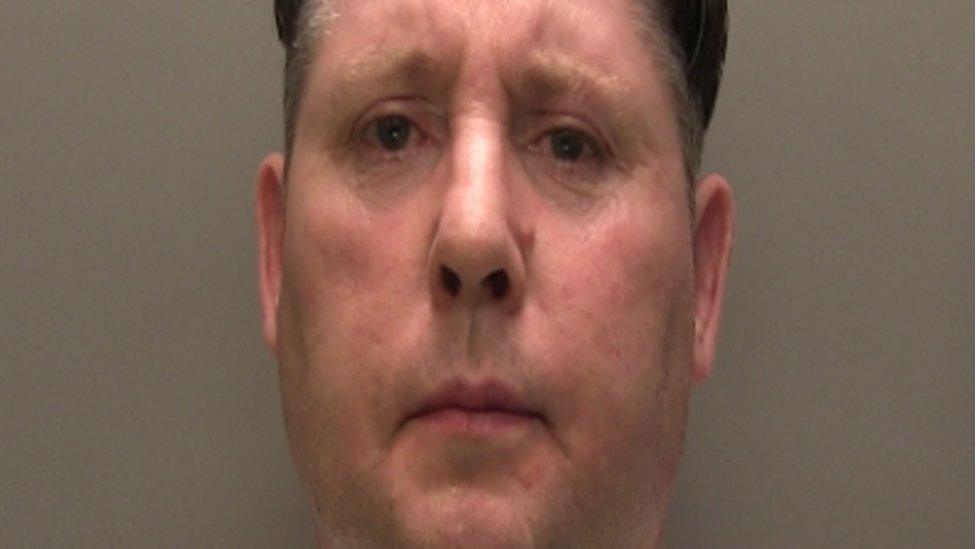
- Published12 September 2017

- Published12 September 2017
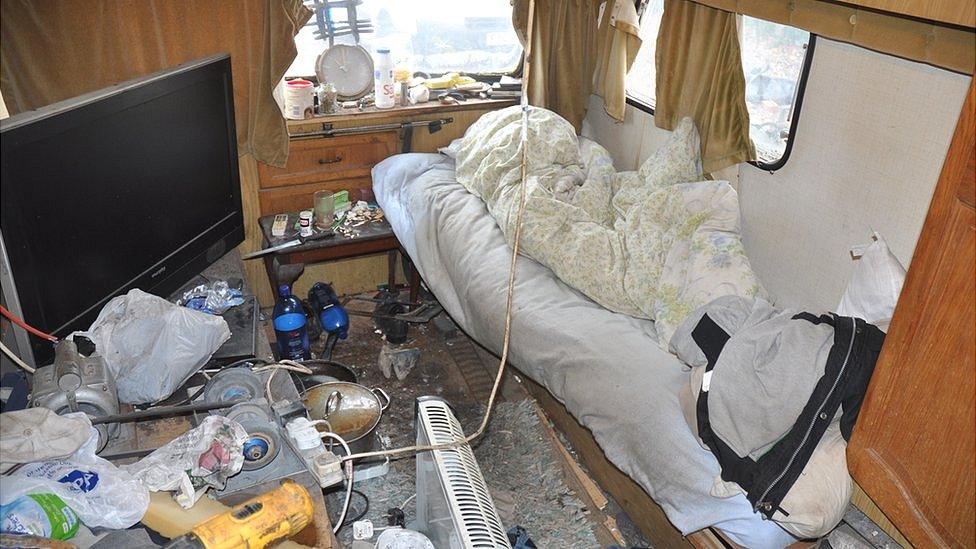
- Published11 August 2017
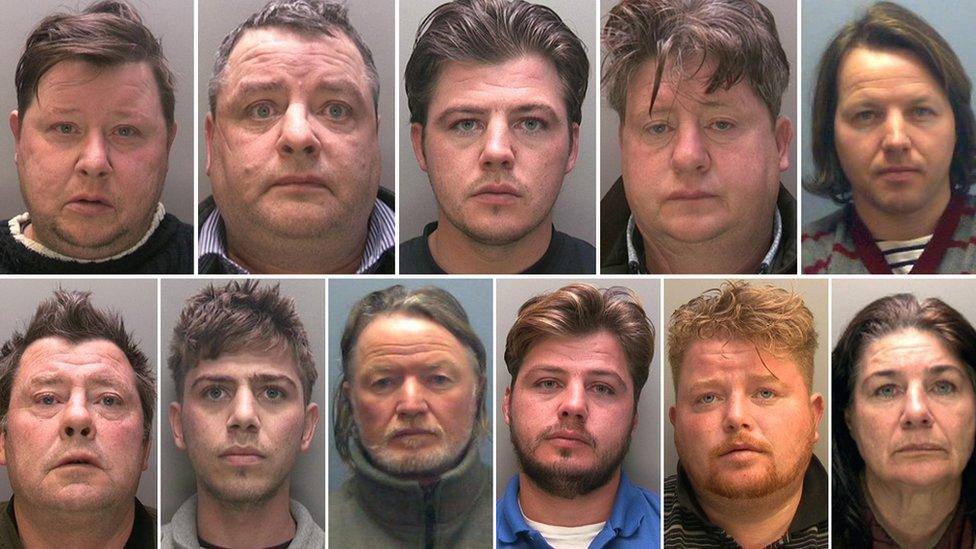
- Published10 August 2017
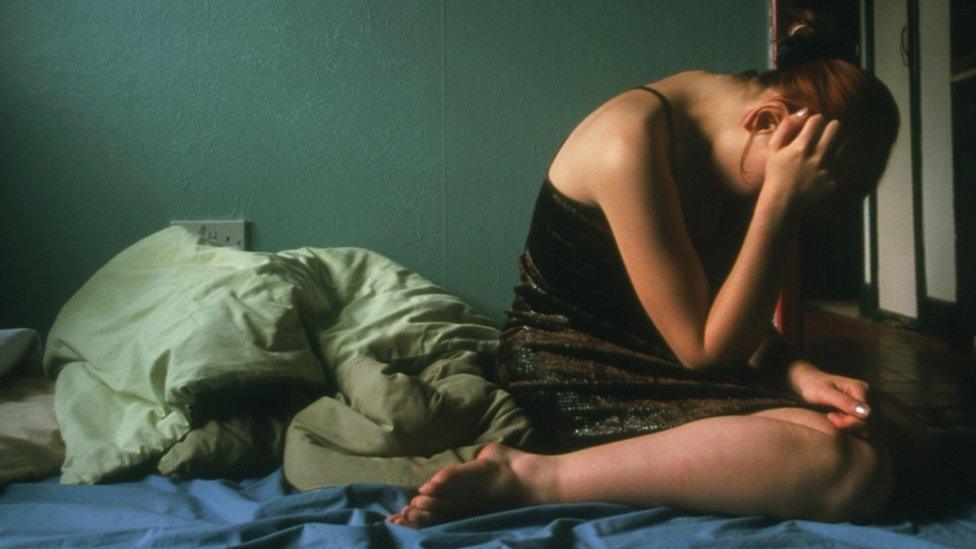
- Published4 April 2017
